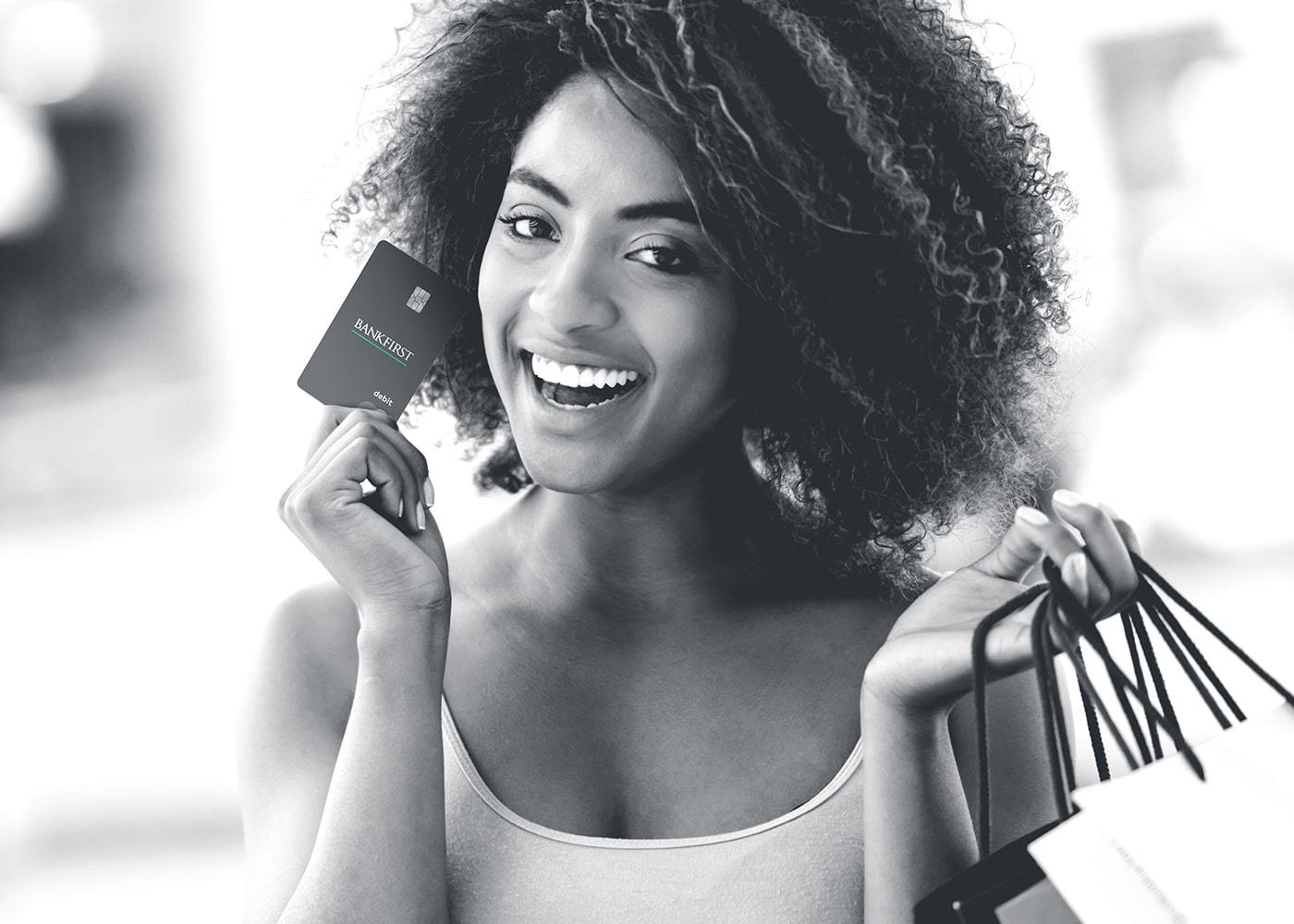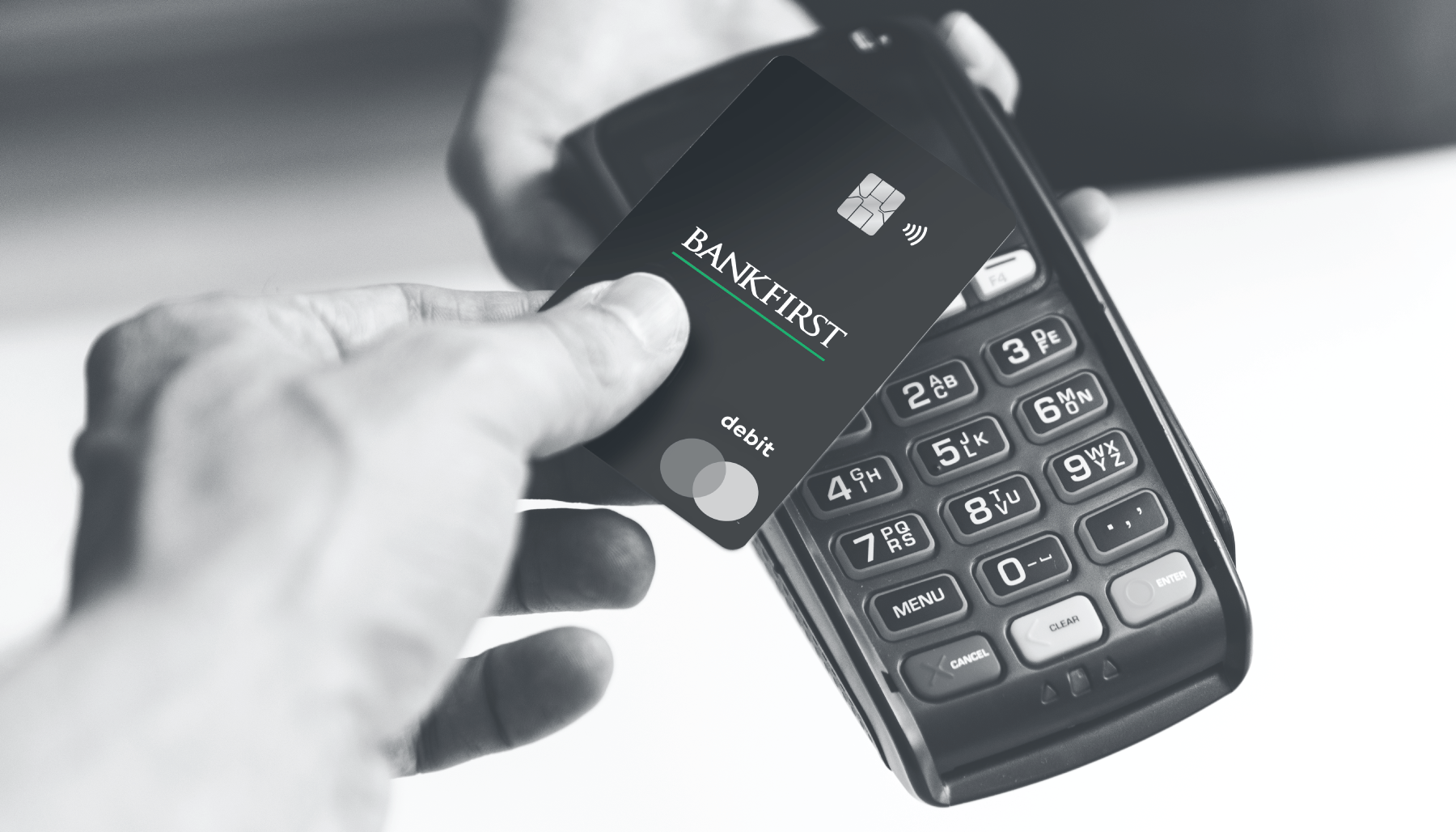What is a chip card?
As chip card technology will soon become the security standard in the U.S., many merchants are already beginning to accept chip cards. You will enjoy greater security when making purchases at chip-enabled terminals since the chip provides better protection against counterfeit fraud. Chip technology is already used in over 130 countries around the world, including Canada, Mexico and the United Kingdom.
A chip card is a standard-size plastic debit or credit card that contains an embedded microchip as well as the traditional magnetic strip. You may hear chip cards referred to as "smart cards" or "EMV cards" – these are just different ways of referring to the same type of card. The chip stores the same information as the magnetic strip found on the back of your credit or Debit Cards; however, the chip encrypts your transaction data with a unique code every time you use your card to keep your identity and personal information much more secure.
What does a chip card look like?
If a card has chip technology, you will see a small metal square on the front left of the card above the account number.
Are chip cards secure?
Yes. Chip technology has been around for over two decades and is already the security standard in many countries around the world. When purchases are made using the chip feature, the transaction is more secure because of a unique process that is used to determine if the card is authentic. This makes the card more difficult to counterfeit.
While magnetic strip cards are still considered secure, chip technology is the next step to providing enhanced security to our customers. Whether you use the magnetic strip or the chip to make your purchase, you can have confidence in the protection and security features we provide for all credit and debit card accounts.
Remember, if you notice any suspicious activity on your account; notify us immediately by calling the number on the back of your card.
Will chip cards prevent third-party data breaches?
Chip card technology provides an additional layer of security to help reduce certain types of fraud resulting from data breaches; however, it will not prevent a data breach itself.
Will chip cards prevent all fraud from happening?
Absolutely not! As the industry continues to develop new ways to protect consumers, perpetrators continue to look for new ways to commit fraud. Chip cards provide an additional layer of security at chip-enabled terminals, on top of the fraud prevention monitoring we currently provide.
Will chip cards allow others to track my location?
No. Chip technology is not a locator system. The chip on your card is limited to supporting authentication of card data when you make a purchase.
Is a chip card the same as contactless payment (for example, Visa PayPass, MasterCard PayWave)?
No. Contactless cards employ near-field communication technology (NFC), which has a radio antenna that transmits account information, and work by waving or tapping your card in front of a device. Chip cards must be inserted face-up into a chip-enabled merchant terminal that allows the chip to make contact with the reader to authorize and complete a transaction.
Do I need a PIN to make purchases with my credit card? What is Chip & Signature and Chip & PIN?
No, you do not need a PIN to make purchases with your credit card. The term "PIN" or "Signature" here simply refers to how you will authorize the transaction – by entering a PIN or by providing a signature. When using your BankFirst credit card, you will be prompted for a signature to complete the transaction.
The enhanced security against counterfeiting is contained within the chip itself. The chip makes the transaction more secure by encrypting information when completing a transaction at a chip-enabled terminal.
How do I use my chip card?
It's easy. When making a purchase at a retailer with a chip-enabled register, simply insert your chip card into the terminal slot (often referred to as 'card dipping') and follow the prompts on the screen. You will still authorize the transaction by signing your name. If the retailer doesn't have chip-enabled registers, swipe the card and sign your name as you do today. When in doubt, follow the prompts at the register if you are not sure whether you should swipe or insert your card. There are no changes to phone or online transactions.
On credit cards you will be prompted for a signature to complete the purchase. When traveling internationally, on rare occasions, you may be asked to provide a PIN. Just communicate to the merchant that the credit card requires a signature only.
On debit cards you will be prompted to enter your PIN or provide a signature as you normally would to verify the transaction.
Now that I have a chip card, do I need to notify the bank before I travel internationally?
We recommend that you set a travel notice on any card you plan to use while traveling, so your card access isn't interrupted. It's also a good time to verify that your account has valid contact phone numbers listed. You can set a travel notice by calling the number on the back of your card and speaking with a BankFirst associate. For your protection, we will continue to monitor card activity even when a travel notice is set.
Will my chip card still work at an ATM?
Yes. You can continue to use your card as you do today by following the instructions at an ATM.
Are there any situations where I could experience issues using my chip card?
When traveling outside the U.S, some card readers at unattended terminals (such as public transportation kiosks, gas pumps) will require a PIN. However, this type of PIN technology is different than what you normally use for cash ATM PIN transactions in the U.S and the card won't be accepted. In these situations, you will need to locate an attended terminal to complete your transaction or plan for an alternative payment method, such as local currency.
You may request an ATM PIN for cash transactions by calling the number on the back of your card or by visiting a local BankFirst office. This PIN is for ATM cash transactions only.
Can the PIN be changed to a PIN of my choice?
On debit cards, the PIN can be changed to a PIN of choice. On credit cards, it cannot be changed from the original PIN that is sent out.
Are there any additional fees associated with chip cards?
No.
Where can I find more information?
Visit gochipcard.com for additional information.




